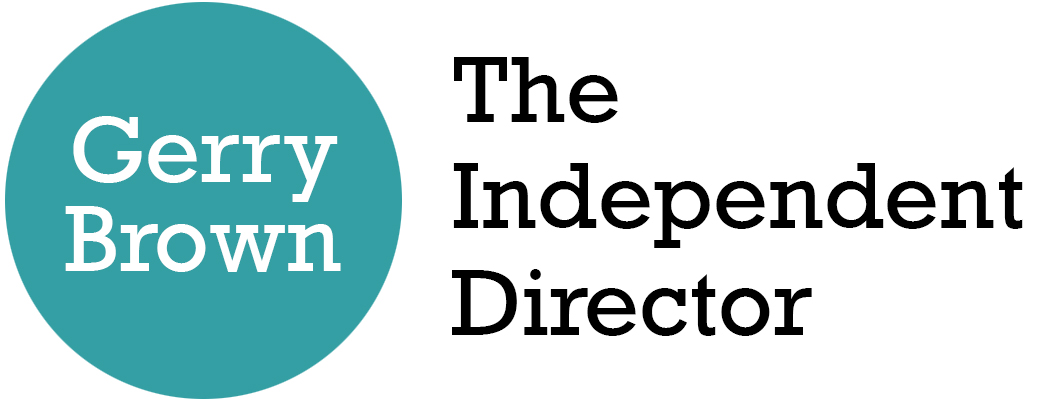
Diversity leads to fewer scandals and more effective boards
How many/ what percentage of women sit on each of your three boards? Are they executive or non-executive appointments?
Three boards I’ve sat on, Keller plc, Forth Ports plc and Biocompatibles plc, had around nine people on the board, and each had one female independent director who had been appointed into a very specific role. For Keller, we wanted a strategy specialist. At Forth Ports we appointed a woman as Chair of the Audit Committee, while at Biocompatibles, I wanted a new appointment to Chair our Quality Committee, so we appointed a woman who had been medical director of a pharmaceutical company.
They were the best candidates for the job but to find them, we carried out a far more exhaustive search than we had previously - particularly where we were operating in very male dominated industries such as construction (Keller) and port operation (Forth Ports).
Do you agree that non-executive appointments are a useful first step towards getting more women onto boards?
Yes, I think it is. Keller and Forth Ports were probably too male-dominated for women to work their way up to executive director status, but they could become non-executives. They did, and they were very good indeed. The need for diversity is gaining more credibility and acceptance which is why I don’t believe the answer is quotas.
Women like Lady Judge, the Chair of the IoD, are high profile appointments and they act as extremely important role models for other women.Do you regard each of your boards as balanced or still a work in progress?
Very much a work in progress. I spend a lot of time talking to companies, and training directors to be non-executive directors so I come across a lot of discussion around this topic. We are on a journey but we’re only about 15% down the way - there is still a long way to go. Part of the reason was highlighted in a recent Harvey Nash Study which highlighted that 50% of UK board appointments do not go through a formal nomination committee process – it’s still the case that boards appoint people known by the Chair or CEO and that has to change - that is unacceptable. It highlights that networking plays an extremely important part in board appointments. It’s very worrying. The Combined Code says there should be a proper formal process for all listed companies including AIM.
What would you say has been your most successful strategy in changing the composition of any board?
This is about achieving a greater diversity, which I believe will lead to fewer scandals and more effective boards. The more global a company, the greater the need for diversity. If a lot of the executives come from the same industry it becomes even more important. At Keller all our executives on the board were steeped in the construction industry so it was very important to have a strategy to change the composition of the board to include people with different industrial experiences. Boards should also be looking at appointing people with very different backgrounds - from universities and charities – as well as more women. And not just one in a ten members, but two or three, so they can really have an impact. I think one of the most important issues is the quality of the search consultants. Head hunters can have a major influence on board composition but head hunters themselves vary enormously in terms of quality. For example, a lot of head hunters have tried to get into the business of finding NEDs but it’s a very specialist business; the head hunters need to know and understand boards and must be able to advise how a board can become better. They need to be able to challenge the Chair about the board composition, not simply take direction. Some head hunters are now running board evaluations and if you can get hold of this level of expertise then that helps provide a clearer and more informed opinion about the role. You need to open the minds of the executive directors about the type of people who will help the board to change. For individual companies Board appointments are relatively infrequent usually and too often not enough thought goes into them.
Do you think there is resistance to change?
There is enormous resistance to change. If you look at recent scandals at Sports Direct, VW, BP, Tesco and in banking which have cost us billions, it’s because they didn’t have effective and diverse boards. The government is concerned about worker representation which is a red herring. This topic of improving company boards effectiveness needs much more serious attention by government.
How beneficial is diversity on your boards? (E.g. debate quality, reducing group think, better decision making)
As I mentioned before, at Keller almost all the executives were steeped in the industry of ground engineering (they did the ground engineering for the 2012 Olympics) so their technical expertise was extremely good. But the global recession meant looking at what other companies had been doing around buying and IT to make the organization more efficient. The Chair, and myself and other independent directors insisted that we brought in consultants to look at our strategy in a much broader context and the board got a lot of benefit, but this wouldn’t have happened if they hadn’t had a diverse board.
The female director we employed at Biocompatibles was absolutely superb in helping us adapt to changes to our business environment and in setting up partnerships with pharma companies. She was both intelligent and sensitive and immediately got the respect of other board members.
If you could make any improvements to any board around diversity, what would they be? (E.g. better inductions, improve internal pipeline, make the working practices more flexible etc.)
Educate the board about the contribution that independent directors can make – there is a lot of ignorance even among listed companies.
There is also a paucity of director education - there needs to be a professional qualification specifically for directors and a lot more training. We don’t need more regulation, we need more training about what works, what doesn’t, and what’s best practice, using experienced individuals to offer advice.
Why do you think gender imbalance is still an issue across European boards? (E.g. increased talent pool, better recruitment processes women needing greater confidence, policies to improve working practices to allow more women onto board etc)
It’s all these things to be honest. We have made progress in the last five years and there is a greater awareness among boards and Chairs about what they have to do. But we need to increase the talent pool, helping women to develop their careers within business so they can aspire to board positions, which I believe is a very important area.
A recent study by Meryl Bushell showed that women often don’t appreciate the need to network enough - they assume that appointments will be made in a formal way and of course they often aren’t. Women have to network to develop their career and they need help and training to help them with this.
In your experience, what are the main challenges facing any new director when they are first appointed? How do you overcome them?
This is covered in my book: The DOs
- understand the business and the sector
- study the company and its history
- read independent reports
- focus on the strategic development of the company and the development of the team
- visit all the locations (including overseas)
- listen to all the staff at every level
- commit time to working with other members of the board
The DON’Ts
- panic if there is a problem (e.g. a profit warning)
- react emotionally
- confront problems rather than walk away from them
- lecture other board members
- get caught in too much detail within board meetings;
if it’s a complex issue it can be discussed by a working group or a committeeWhat personal qualities and/or skills in your view make a good director?
The good the bad and the ugly!
Good qualities are – independence, integrity, listening skills, cultural flexibility especially for an international company, a professional approach so knowing what skills and experience are needed, and an entrepreneurial approach to help the business grow.
Bad qualities are – a poor communicator, someone who goes native, low attention levels, unprepared for board meetings, doesn’t visit company locations or contribute to value creation, and tries to do the executive job (it’s a very different role).
Ugly qualities are – irresponsibility, believing shareholders are irrelevant, allowing personal interests to prevail, low attendance at board meetings, being corrupt, never challenging executives, and poor business judgement.
This interview first appeared on European Women on Boards (EWoB) website in January 2017. EWoB is a European-wide non-profit organisation which was founded in June 2013 in Brussels. Their vision is to create a unique network of first tier associations from all over Europe that work towards the same purpose: a balanced representation of women on boards of directors. EWoB aims to promote the benefits of gender diversity, a recognised enabler in business. Therefore the EWoB network seeks to convince the business world of the positive impact of women’s presence on company boards and economic opportunity that an equal gender balance on company boards offers.
